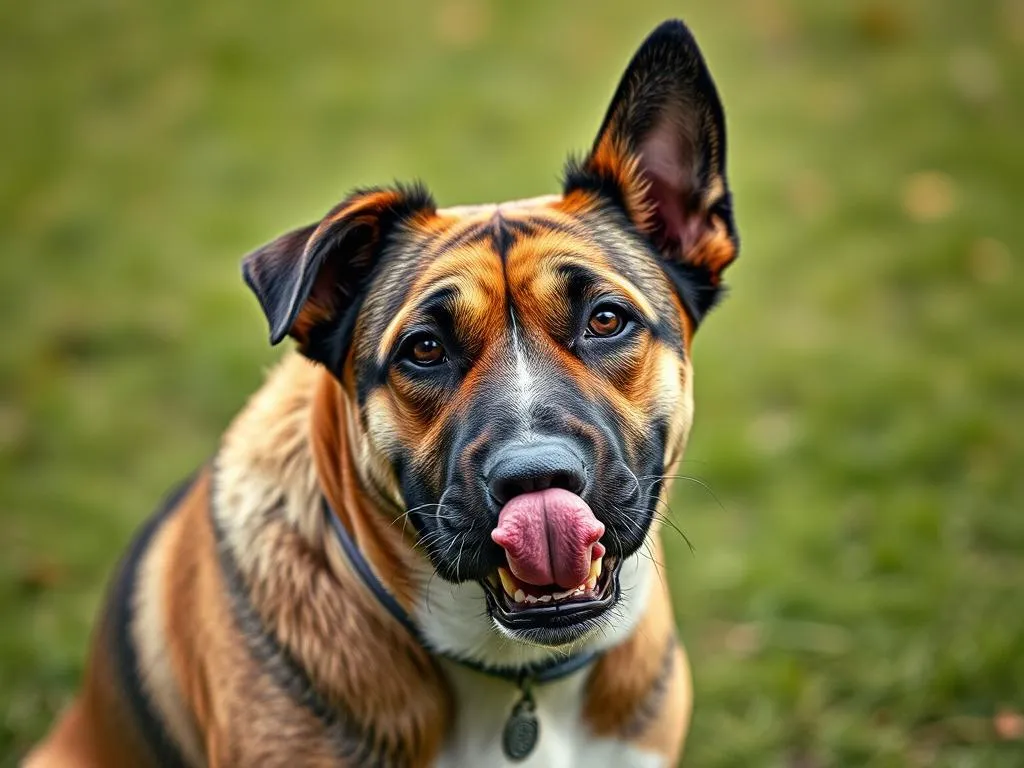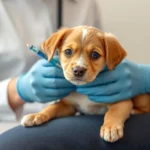
Introduction
Maintaining the health of our canine companions is a crucial aspect of pet ownership. Understanding their bodies, behaviors, and needs helps ensure they live long, healthy lives. One common question that arises among dog owners is can dogs burp? This question not only reflects curiosity but also highlights the importance of understanding canine digestive health.
Many pet owners harbor misconceptions about dog digestive health, often attributing unusual behaviors to a lack of care or poor diet. In reality, burping can be a normal aspect of digestion for dogs, yet it can also indicate underlying health issues when excessive. This blog post will delve into the intricacies of dog digestion, explore the phenomenon of burping, and provide essential tips for dog health care.
Understanding Dog Digestion
The Canine Digestive System
The canine digestive system is a complex network tailored for the unique dietary needs of dogs. Dogs have a relatively short digestive tract compared to humans, which allows for quick processing of food. Their digestive anatomy includes the mouth, esophagus, stomach, small intestine, large intestine, and anus, each playing a vital role in nutrient absorption and waste elimination.
In comparison, the human digestive system is longer and more intricate, allowing for the breakdown of a wider variety of foods. Dogs are primarily carnivorous, although they have evolved to consume a more omnivorous diet over time. This evolutionary shift is reflected in their digestive processes, which differ significantly from those of humans.
Common Digestive Processes
Digestion in dogs follows a straightforward path: ingestion, digestion, absorption, and excretion. When dogs eat, food enters the mouth, where it is mechanically broken down by chewing and mixed with saliva. The food then travels down the esophagus into the stomach, where digestive enzymes and acids break it down further.
The small intestine is where most nutrient absorption occurs, aided by gut flora that helps in digesting food. Finally, undigested material passes into the large intestine and is excreted as waste. Understanding these processes is crucial in recognizing what may be normal or abnormal in your dog’s digestive behavior, including burping.
Can Dogs Burp?
The Science Behind Burping
Can dogs burp? Yes, they can! Burping, or belching, is the release of gas from the digestive tract through the mouth. In dogs, this often occurs after eating or drinking quickly, which can lead to air being swallowed along with food. The gas needs to escape, and burping is the body’s way of relieving this pressure.
Factors such as the type of food, eating habits, and even stress can contribute to the amount of gas produced in the digestive system. For instance, carbonated beverages or certain high-fiber foods may increase gas production, leading to more frequent burping.
Why Do Dogs Burp?
Identifying normal versus excessive burping is essential for dog owners. Normal burping can happen occasionally after a meal, particularly if a dog has eaten quickly or has a sensitive stomach. However, excessive burping may signal underlying issues.
Situational triggers for burping include:
– Eating too fast
– Stressful environments
– Physical activity right after meals
Understanding your dog’s behavior during and after meals can help you determine whether their burping is typical or if it warrants further investigation.
When to Be Concerned
While occasional burping is generally harmless, there are signs to watch for that may indicate a more serious health issue. If your dog exhibits any of the following symptoms alongside burping, it may be time to consult a veterinarian:
– Frequent or excessive burping
– Vomiting or gagging
– Lethargy or lack of appetite
– Signs of abdominal pain (e.g., whining, restlessness)
Comparing burping with other symptoms will help you gauge whether your dog is experiencing a digestive issue that requires attention.
Health Implications of Burping
Normal Burping
Normal burping behavior in dogs is typically infrequent and occurs after meals. Recognizing your dog’s normal digestive patterns can help you identify any changes that may be cause for concern. For many dogs, a few burps after eating or drinking is perfectly healthy, especially if they are not accompanied by any distress or other symptoms.
Excessive Burping and Its Causes
Excessive burping can be a sign of various health issues, including gastrointestinal disorders, food intolerances, or even anxiety. Common causes include:
– Gastroesophageal reflux disease (GERD)
– Food allergies or intolerances
– Bloat (gastric dilation volvulus)
If your dog is burping excessively, it is crucial to consult a veterinarian. Early diagnosis and intervention can prevent more serious health issues down the line.
Diagnosing Digestive Issues
Veterinarians may use several diagnostic tools to assess a dog’s digestive health. These can include:
– X-rays to identify gas buildup in the stomach
– Ultrasound for a detailed view of the digestive tract
– Endoscopy to visualize the esophagus and stomach
A thorough health history and physical examination are also essential in identifying potential digestive issues. Keeping track of your dog’s eating habits, including the frequency and amount of burping, can aid your veterinarian in making an accurate diagnosis.
Preventive Health Care for Dogs
Proper Nutrition
A balanced diet is vital for your dog’s digestive health. Selecting high-quality dog food that meets their nutritional needs can significantly impact their digestion and overall well-being. Foods rich in fiber and probiotics can support gut health and minimize excessive gas production.
Feeding Tips to Reduce Burping
There are several strategies to help reduce excessive air intake while eating:
– Use slow feeders: These bowls are designed to slow down a dog’s eating, allowing for better digestion and less air swallowing.
– Portion control: Feeding smaller, more frequent meals can help reduce the amount of food consumed at once, decreasing the likelihood of burping.
– Maintain a calm environment: Creating a stress-free mealtime atmosphere can help prevent anxiety-induced burping.
Regular Veterinary Check-Ups
Routine veterinary visits are essential for preventive care. Regular check-ups allow for early detection of potential health issues, including those related to digestion. Your veterinarian can recommend an appropriate schedule for visits based on your dog’s age, breed, and health status.
Home Care and Monitoring
Observing Your Dog’s Behavior
Monitoring your dog’s behavior and digestive signs at home is crucial for early detection of any issues. Keep a journal to track:
– Burping frequency and timing
– Eating habits and any changes in appetite
– Other digestive symptoms (e.g., vomiting, diarrhea)
This information can be invaluable when discussing your dog’s health with a veterinarian.
When to Seek Veterinary Help
If you notice changes in your dog’s burping patterns or observe other concerning symptoms, it’s essential to seek veterinary help promptly. Clear guidelines for when to contact a vet include:
– Frequent excessive burping
– Accompanying symptoms like vomiting or lethargy
– Sudden changes in appetite or behavior
Timely intervention can be critical in addressing potential digestive problems before they escalate.
Conclusion
Understanding your dog’s digestion and the phenomenon of burping is vital for ensuring their health and well-being. While can dogs burp is a common question, the answer encompasses much more than just a simple yes or no. Recognizing normal digestive patterns, knowing when to be concerned, and practicing preventive health care are all crucial aspects of responsible dog ownership.
Monitoring your dog’s burping habits, diet, and overall behavior will empower you to take proactive steps in maintaining their health. Ultimately, fostering a deep understanding of your dog’s digestive system will help you provide the best care possible, leading to a happy and healthy life for your furry friend.









